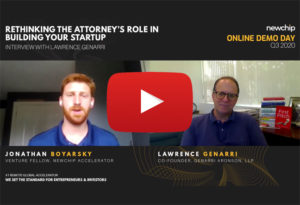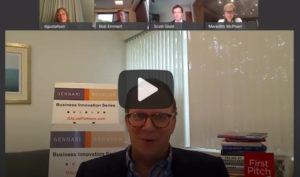By Larry Gennari Boston Business Journal January 10, 2022
Bruce Springsteen’s latest album, Letter to You, reveals an artist at the height of his songwriting powers. It’s a deeply ruminative reflection on growing older and making sense of one’s work, legacy and place in the world. That’s a sentiment I hear a lot these days from business owners, especially with the pandemic and the introspection it has ushered into all of our lives.
Springsteen is a music entrepreneur who has emphasized authenticity, lyrics that capture a current zeitgeist, and a keen and steady attention to technology, all so that he remains connected to a loyal, core audience. Last December, like many entrepreneurs, and no doubt after much thought, he completed a transaction, selling his core catalog to Sony Music, reportedly for more than $500 million.
That’s an enviable return for a lifetime of work, and for many founders contemplating a farewell tour of their own, an example of the possible, especially if they start thinking now about an exit later. As always, a successful exit strategy begins with honest introspection, experienced advisers and, of course, a few insightful business books.
For starters, sellers need an objective take on what makes them unique in their industry. I wonder if Springsteen read Major Labels: A History of Popular Music In Seven Genres, the recent book by New York Times music critic Kelefa Sanneh. Music is the soundtrack to our lives, and Sanneh takes the reader on a deep and nostalgic journey through industry history, including rock, R&B, country, and pop. His insights are sharp, thoughtful and fun (I think we all can agree, Nickleback is the worst and their execrable music should be used only for aversion therapy.) Amazing how technology trends like streaming can take an industry by storm and allow savvy newcomers (Lil Nas X) to thrive and experienced players to capitalize at just the right time. Small wonder Bob Dylan, Stevie Nicks, and the Red Hot Chili Peppers all cut their own lucrative catalog deals last year too.
No matter the industry, every owner/entrepreneur also must assemble an experienced team of advisers, including an accountant to model after-tax scenarios, an M&A lawyer to understand “both-sides,” an investment banker to create a competitive auction, and ideally, a “hidden hand” adviser/coach to offer perspective and shake things up. On the latter point, I’d recommend entrepreneur Ted Schlueter’s Branding For Buyout: How To Tell Your Story And Get The Deal You Deserve, an entertaining, read-in-one-sitting book that provides plenty of food for thought on exit planning.
Positioning matters, especially to potential buyers, and Schlueter offers numerous examples of how owners can explore, develop, and “brand” their unique competitive value. Of course, “the numbers” matter too, and every manager and team would do well to read Making Numbers Count: The Art And Science Of Communicating Numbers, the clever new book by Stanford Business Professor Chip Heath and science journalist Karla Starr. Stark, dry financials can get lost in an acquisition-offering memo or teaser unless they are weaved into narrative and grounded in familiar and memorable frameworks. For example, 40% of people who don’t wash their hands upon exiting the bathroom instead means 2 out of 5 people whom you shake hands with have used the toilet and not sanitized before touching you. Yikes — and you thought concert crowd-surfing was scary!
Finally, like Springsteen, business owners also need to think through the post-transaction phase of their exit strategy. Some undoubtedly will wax existential and embark on quiet retirement solely as the next and last chapter of their lives. Those are the “planners,” and they should liven up and read American Afterlife: Reinventing Death In The 21st Century, the disarmingly reflective and funny new book by University of Chicago Professor Shannon Dawdy on the funeral industry and our changing American rituals around death. I like the idea of green burials and who wouldn’t want to be shot out of a cannon into a forest or the ocean during their memorial service?
For others, post-deal means more time to pursue actively questions of existence, greater truths, and a consequential life. Those people should read Rescuing Socrates, Columbia Professor Roosevelt Montas’ powerful new book on the enduring value of classic liberal education and the search for truth through the eyes of St. Augustine, Socrates, Freud and Ghandi. They also should consider the lyrics in Springsteen’s Listen to You.
Dreaming of a final tour one day soon for yourself? With the right team, advice and planning, yours can be meaningful too —even if you didn’t write Born To Run.
Read in the Boston Business Journal
Authors & Innovators is an occasional column by Larry Gennari, a transactional lawyer, law professor, and chief curator of Authors & Innovators, an annual business book and ideas festival. Gennari also teaches Project Entrepreneur, a business fundamentals bootcamp for returning citizens, at BC Law School.





 Having served as a corporate and transactional lawyer for more than two decades, Gennari’s work includes countless mergers and acquisitions, private offerings, venture capital financings, joint ventures, and public offerings as well as SEC compliance for public companies and their directors and officers. He’s also an Adjunct Professor at Boston College Law School, and developed one of the Law School’s newest courses, Project Entrepreneur, a student-led business fundamentals bootcamp for entrepreneurs with criminal records, many of whom were previously incarcerated.
Having served as a corporate and transactional lawyer for more than two decades, Gennari’s work includes countless mergers and acquisitions, private offerings, venture capital financings, joint ventures, and public offerings as well as SEC compliance for public companies and their directors and officers. He’s also an Adjunct Professor at Boston College Law School, and developed one of the Law School’s newest courses, Project Entrepreneur, a student-led business fundamentals bootcamp for entrepreneurs with criminal records, many of whom were previously incarcerated.
 The very notion of keeping up with the plethora of new business books is an intimidating challenge. For those of us who can’t, he offers us highlights with the value added of a compelling story that ties it all together. The 2019 3rd Annual Authors & Innovators Festival took place last week at the UMass/Mt. Ida Campus with a roomful of avid “listeners!” The three panels included 13 speakers and VIP moderators – Larry himself, Doug Banks – Boston Business Journal, and Carol Fulp. Topics included: Team Building, Retaining your competitive edge, and Success through Innovation. Here’s my quick topline of these highly energetic and informative panels.
The very notion of keeping up with the plethora of new business books is an intimidating challenge. For those of us who can’t, he offers us highlights with the value added of a compelling story that ties it all together. The 2019 3rd Annual Authors & Innovators Festival took place last week at the UMass/Mt. Ida Campus with a roomful of avid “listeners!” The three panels included 13 speakers and VIP moderators – Larry himself, Doug Banks – Boston Business Journal, and Carol Fulp. Topics included: Team Building, Retaining your competitive edge, and Success through Innovation. Here’s my quick topline of these highly energetic and informative panels.









